Ningbo University’s AquacultureProgram was founded in 1958 (formerly Zhejiang Fisheries College).It is one of the earliestfiveundergraduate programs in aquaculture in China. Now it has become a national first-rate program, a characteristic program, an advantageous program of Zhejiang Province in the 13th Five-Year Plan Period and a brand program of Ningbo City. In 2014, it was approved as a national pilot program for reform in the Excellent Agriculture and Forestry Talent Education and Training Program (Top-Notch and Innovative) in the first batch. In 2017, our university’sAquacultureScience, Mechanics, Information and Communication Engineering formed the “Marine Biotechnology and Ocean Engineering” discipline system, which was selected for the “Construction of First-Class Universities and Disciplines of the World”. In the new rankings of first-class programs (research-oriented) in China by Chinese University Alumni Alliance, Ningbo University’s Aquaculture Science Program ranks 2nd (7*) in China and Ningbo University’s Aquaculture Science Discipline ranks 2nd(soft discipline) in China. In recent years, we have formulated the development goal and training plan of this program in accordance with the Excellent Engineer Education and Training Program 2.0, Excellent Doctor Education and Training Program 2.0, Excellent Agriculture and Forestry Talent Education and Training Program 2.0, Excellent Teacher Training Program 2.0, Excellent Legal Talent Education and Training Program 2.0, Excellent Journalism and Communication Talent Education and Training Program 2.0, Basic Discipline Top-Notch Student Training Program 2.0, the Revitalization of Undergraduate Education: students return to common sense and study hard; teachers return to their duties and concentrate on teaching; universities return to their original aspirations and train socialist builders and successors; higher education returns to dreams and realizes the dreams of serving and strengthening the country through education.
Ⅰ. Training Objectives
This program trains high-level applied, interdisciplinary and extrovert talents who have good scientific and cultural literacy, a high sense of social responsibility, healthy physical and mental qualities, mastery of the basic theories, knowledge and skills of aquaculture science, strong innovative spirit and entrepreneurial ability, can engage in scientific research, teaching, aquaculture technology development and promotion, management, production and operation in scientific research, education, aquaculture production and management sectors, and outstanding agricultural and forestry talents who understand agriculture, love rural areas, love farmers, have innovation capability, leadership and social responsibility.
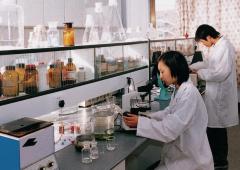
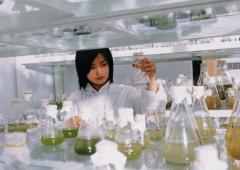
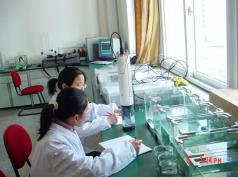
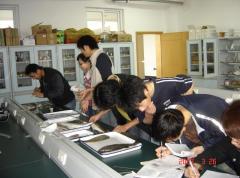
Ⅱ. Core Curriculum
The core curriculum includes basic courses, such as General Zoology, General Ecology, Aquatic Biology, Aquaculture Water Chemistry, Ichthyology, Genetics, Aquatic Thremmatology, Live Food Cultivatology, Aquatic Animal Culture and Proliferation, Aquatic Animal Nutrition and Feed Science, Aquatic Animal Diseases, Microbiology, Facility Fishery Engineering, Fishery Legislation and Fishery Management, Bioinformatics, Ornamental Fish and Aquarium Landscaping, Molecular Biology, Genetic Engineering, Supply Chain Management, Field Specimen Collection, Production Practice/Intensive Training, etc. Massive Open Online Courses and Micro-Lectures are introduced. Flipped Classroom is available. Virtual simulation and other experimental teaching are offered. A modern aquaculture curriculum integrating such disciplines as environment, material structure, breeding engineering, food nutrition, breeding, diseases, information technology, mechatronics and automation has been formed.
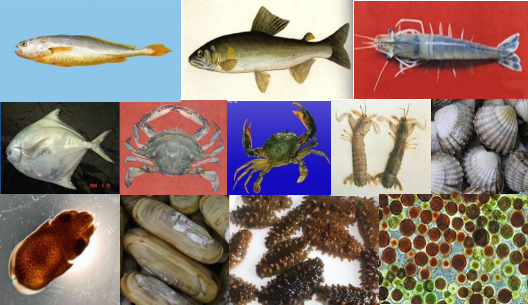
Animals and plants studied by ourAquacultureProgram in recent years
Ⅲ. Innovative AquacultureTalentTrainingMode
The program admits only the best applicants in the first batch and implements the “3+1+2” training mode. The goal of training is to strengthen students’ basic knowledge, focus on students’ practical ability and innovation ability, and train students to master the cutting-edge technology in the discipline and have an international vision. In order to improve production skills and management ability, students in this program have won more than 30 national innovation and entrepreneurship competition awards. This program leads in training new professional agricultural talents who love aquaculture, understand technology and are good at management.
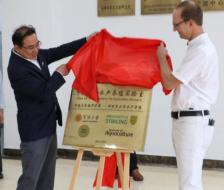
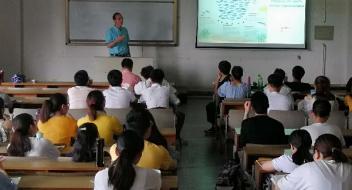
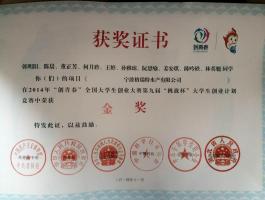
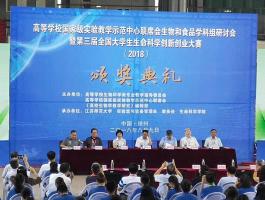
Ⅳ. Teaching Staff
This program now has 70 full-time teachers, including 25 professors, 19 associate professors, 75% of whom have a doctoral degree, 20 doctoral supervisors and 35 master’s supervisors (including doctoral supervisors), one selected for the National Hundred, Thousand and Ten Thousand Talent Project, one selected for the National Ten Thousand Talent Program, one beneficiary of the Excellent Young Scientists Fund, three Scientists Holding Positions in the National Agricultural System, one member of the National Committee for Examination and Approval of Protospecies and Improved Varieties of Aquatic Products, one Young or Middle-Aged Expert with Outstanding Contributions to Science and Technology in Zhejiang Province, one Qianjiang Scholar, five talents on the first, second and third levels of Zhejiang New Century 151 Talent Project, two Young or Middle-Aged Academic Leaders at Universities in Zhejiang.
Ⅴ.High-QualityTeachingResources
Excellent experimental teaching conditions
At our Meishan Campus, there are 8,800 square meters of laboratories for teaching the undergraduate program in aquaculture science, with 3,365 experimental teaching instruments, worth more than CNY 44.21 million in total. The National and Provincial Aquaculture Experimental Teaching Demonstration Center implements web-based experimental teaching and management. The center’s website (//aqlab.bocaidaquan.com) has Experimental Teaching, Equipment and Environment, Open Laboratories, System and Management and other columns. Our Aquaculture Program has good hardware and software conditions for experimental teaching.
Superior scientific research conditions
Our Aquaculture Science Program’s Experimental Teaching Center, the laboratories in the south building and the north building ofthe School of Marine Sciences at Meishan Campus are open to undergraduates, providing conditions for students to apply for open laboratories and bioscience competitions, Budding Talent projects, SRIP, and other student scientific research projects.Most of our students’ graduation thesis topics come from teachers’ research projects, so funding for students’ research is guaranteed.
Complete practice and practical training conditions
Our Undergraduate Program in Aquaculture Science has over 30 National Agriculture, Research and Education Cooperation Training Bases, provincial and municipal off-campus Aquaculture Professional Practice Bases for students to carry outprofessional practice and social practice.
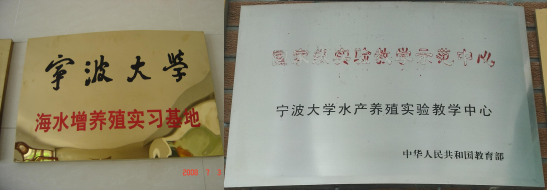
In the second semester of junior year, our undergraduates have post practice for 12 weeks with “double supervisors” on and off campus. We implement Agriculture, Research and Education Cooperation for Collaborative Training. On our campus, there are Undergraduate Practice and Practical Training Bases, a Marine Life Museum-Popular Science Teaching Base for students’ innovation and entrepreneurial training, to train “Outstanding Agricultural and Forestry Talents” with comprehensive development in theoretical knowledge and practical skills.
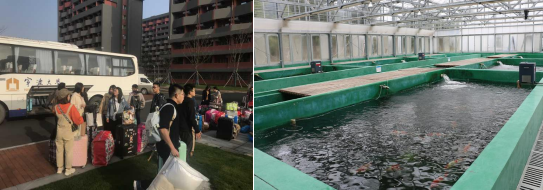
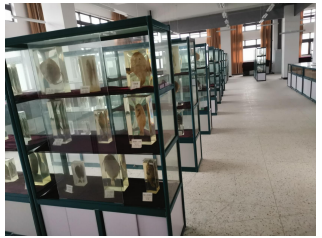
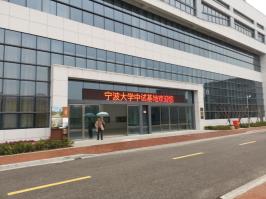
Ⅵ. Teaching and Research Achievements
While doing a good job in professional teaching, this program’s teachers focus on the needs of marine economy development in Zhejiang Province, actively carry out basic and applied research on bottleneck problems such as seeds, food, environment, and diseases that hinder the development of aquaculture, and insist on industry-university-research cooperation to serve the development of local fishery economy.Scientific research for teaching also brings endless vitality to the program’s development.In the past 5 years, full-time teachers have been approved more than 150 scientific research projects, including 90 national projects such as national funds, 59 provincial and ministerial projects, with funding up to CNY 71.25 million. More than 200 high-level academic papers have been published, including more than 120 published in SCI journals and more than 80 published in first-class journals. 106 invention patents have been granted. One second prize in the NationalScience and Technology Progress Award and three second/third prizes in Zhejiang Provincial Science and Technology Progress Award have been taken. More than 30 technology transfers have created economic benefits of more than CNY 1 billion a year.

Over the last five years, this program’s teachers have made excellent achievements in teaching reform and teaching research, including two provincial teaching achievement awards, nine municipal or university teaching achievement awards, three provincial quality first-rate courses, six university quality courses, two provincial teaching reform projects, 11 textbooks and 21 teaching research papers.
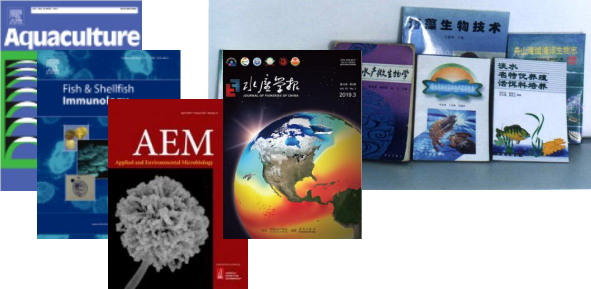
Ⅶ.PostgraduateEducationandEmployment
In the past three years, the average employment rate of our graduates is above 98% (100% in 2021). In 2021, the graduate school enrollment rate of our graduates was 61.2%. 100% of them are admitted to “Double First-Class” universities, including the Institute of Oceanology and the Institute of Hydrobiology, Chinese Academy of Sciences, Ocean University of China, Shanghai Ocean University, East China Normal University, Xiamen University, Zhejiang University, Ningbo University (embodying or achieving undergraduate education commensurate with a research-oriented discipline)。
Main employment destinations: fisheries research institutes, marine fisheries bureaus or marine products bureaus, aquaculture technology promotion stations, animal and plant quarantine and inspection departments, health and epidemic prevention departments, schools, state-owned enterprises and private enterprises , etc.
This undergraduate program’s graduates work on positions highly correlated with their majors a year after graduation. Our students’ satisfaction with the university is higher than 96.73%. Employers have high recognition for this program’s graduates, who are 99% competent.90% of our graduates have a certain spirit of innovation (listed companies: Techbank, CP Group, etc.).
Ⅷ.Advantages andFeatures
OurAquacultureProgram has trained 2,000 undergraduates and more than 400 postgraduates for the society.Most scientific and technological talents in the aquaculture industry in Zhejiang Province are trained by this program.Many graduates of this program have become backbones or department leaders of aquaculture administrative and scientific research units at all levels in China and Zhejiang or become technical experts o
r persons in charge of local fishery seed production and aquaculture enterprises.
Our AquacultureScienceProgram now has three major fields of study: Aquaculture, Environment and Diseases, Nutrition and Feed. Undergraduate students can choose their major fields according to their own conditions, interests, and social needs.
Our Postgraduate Program inAquacultureScience admitted 59 postgraduates in 2021 in four major fields: Aquatic Animal Seed Breeding, Algae and Food Culture, Aquatic Animal and Plant Disease Control and Protection and Restoration of Aquaculture Environment.
Our AquacultureScienceProgram’s students from Zhejiang can apply for free tuition. Mr. Li Zhou, a graduate from our AquacultureScienceProgram in 1993, donated Ningbo University’s Baiying Scholarship, which is used to reward undergraduates with excellent academic performance and excellent performance in various aspects. The scholarship is awarded once every academic year to 50 students, CNY 3,000 per student. The proportion ofour AquacultureScienceProgram’sstudents winning the scholarship is high. In addition,the School of Marine Sciencesoffers research assistant positions to students, providing a platform for students to participate in research projects in laboratories, and providing students with part-time job opportunities to cover part of their living expenses.
Ⅸ.ContactInformation
Contact Person:Yin Fei Phone Number:689446 Email:[email protected]
Contact Person: Mu ChangkaoPhone Number:647486 Email:[email protected]

